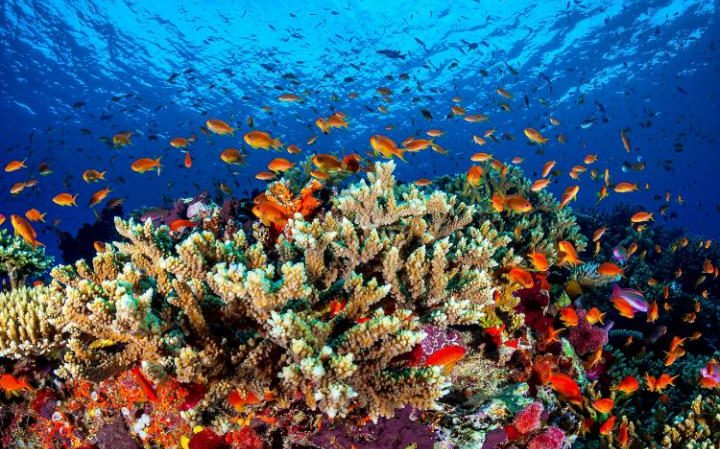Looking To Create A Hydraulic Society
As World Oceans Day Is Observed June 8
Anyone who follows the news knows that the dangers to the ocean are many.
Spills and leaks, dying reefs, depleted fisheries.
And that means the dangers to humanity are many, too, because humankind’s future hinges on how well we preserve and protect the planet’s greatest resource, says Peter Neill, director of the World Ocean Observatory (www.worldoceanobservatory.org
“We should be frustrated and furious,” Neill says. “We should be outraged by governments that delay and prolong any policy, regulation or action directed toward sustaining this essential natural environment.”
On June 8, attention will turn at least fleetingly to the ocean for World Oceans Day, a time set aside to focus on its importance and to advocate ways to ensure its health for future generations.
Neill notes that there are thousands of ocean advocates, policy makers, scientists, communicators, organizers and individuals all over the world fighting to keep the ocean safe, and he applauds the efforts.
But he also can’t help but be a bit pessimistic.
“My sense is that this medicine is not working, is not yet strategic enough, strong enough, smart enough to do what must be done,” Neill says. “We are advocating for the ocean with the best intentions and hope. We know what must be done, but we are not yet aware enough, mad enough or desperate enough to do enough about it.”
Neill says there are several reasons the human race needs to create a “new hydraulic society,” organizing our social, financial and political order around the most valuable element on Earth – water in all its forms, places and uses. Here are a few:
• The land is exhausted. We are depleting many of our natural resources on land and pollution has added to our problems. What happens on land also affects the oceans, which is one more reason it’s imperative that we don’t delay protecting them, Neill says.
• Water covers 70 percent of the Earth. Water is everywhere. It’s in the oceans, rivers, lakes, ponds and the atmosphere. It’s even in human bodies. It only makes sense that we should organize society around an asset so abundant.
• The ocean holds a wealth of resources. The ocean can provide climate and weather moderation, fresh water, food, energy, medicine and recreation, among other solutions to the myriad problems people face.
“Every human need for the future is dependent on a healthy, sustainable world ocean,” Neill says. “The ocean is our cure. Why would we destroy it?”
About Peter Neill
Peter Neill is founder and director of the World Ocean Observatory (W2O) (www.worldoceanobservatory.

Leave a Reply